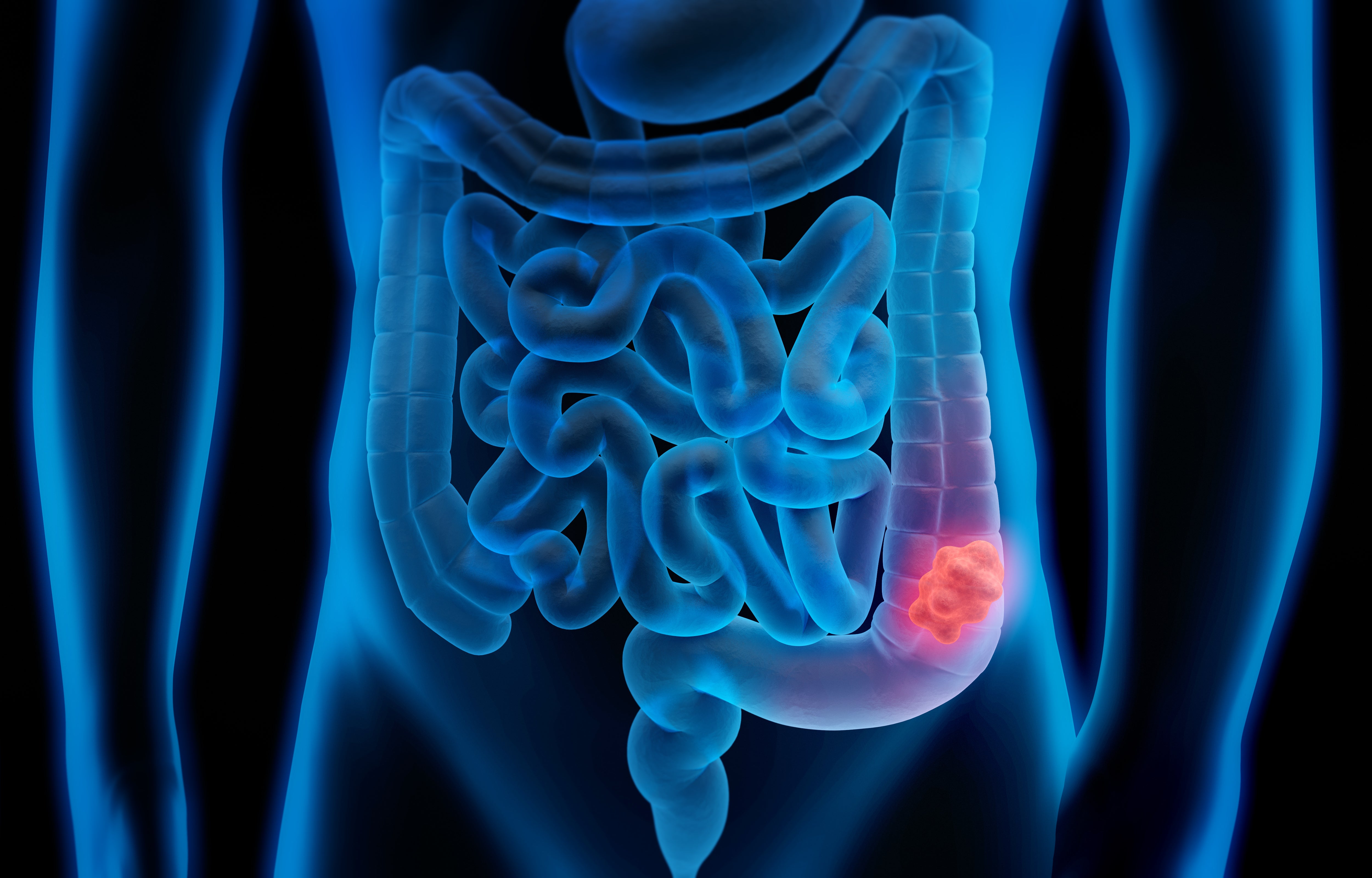45 is the New 50 When it Comes to Colorectal Cancer Screening
March 26, 2023
By: Val Enti
Categories: Cancer, Digestive Health, Men's Health, Women's Health
Tags: digestive health
What do Actors Chadwick Boseman and Audrey Hepburn, along with Coach Vince Lombardi and Cartoonist Charles Schulz have in common?
They died of colorectal cancer.
What do Pope John Paul II, President Ronald Reagan, TV Personality Sharon Osbourne, and Fashion Designer Carmen Marc Valvo have in common?
They had colorectal cancer and survived.
In 2023, an estimated 153,020 people will be diagnosed with this highly preventable disease. They will join more than 1.4 million colorectal cancer (sometimes called colon cancer) patients and survivors living today.
 Today’s Guidelines
Today’s Guidelines
“The age guideline for a first colonoscopy has recently changed to 45, down from 50, because the incidence of colorectal cancer in younger people — especially in their 40s and 50s — are on the rise,” said Michael Kinning, DO, Trinity Health Medical Group Gastroenterology. “The age for initial screening was shifted earlier to help prevent incident colon cancers in a first-time colonoscopy.”
According to the Centers for Disease Control and Prevention, the recommended ages for a screening colonoscopy in average-risk adults are 45 to 75.
How do you know if you are at greater risk? You may need to be screened earlier if you have:
- A family history of colorectal cancer or polyps
- Ulcerative Colitis or Crohn’s Disease
- An identified genetic predisposition to colorectal cancer, such as Lynch syndrome
In their mid-40s, patients should discuss colorectal cancer screening with their primary care provider (PCP), or possibly earlier, depending individual circumstances.
Why does everyone need to be screened at age 45? Colorectal cancer does not always present with symptoms, but when caught early, it can be treated. In 2020, colorectal cancer was the second leading cause of cancer deaths in the United States. That is why it is vital to be screened.
Colorectal Screening
The most common screening method is colonoscopy, but there are other options, including noninvasive stool tests.
“Screening options are broken down into tiers. The two first-tier tests are colonoscopy and FIT, which is a stool test that looks for hidden blood in the stool. FIT-DNA or Cologuard is another stool test that may also be used. For average-risk individuals, these tests are acceptable. If the patient has a personal history of colon polyps or any family history of colon cancer, a colonoscopy should be performed,” said Dr. Kinning.
Gastroenterologists
The specialists who perform these screenings are gastroenterologists, who are experts in the disorders and diseases that affect the digestive system.
PCPs refer their patients to these specialists who help determine what screenings are most appropriate for each patient, and how frequently screenings should occur. They will ask questions about potential symptoms of colon cancer, such as:
- A change in bowel habits
- Blood in or on your stool (bowel movement).
- Persistent diarrhea or constipation
- Abdominal pain/cramps that do not go away
- Unexplained weight loss
The Colonoscopy
Some patients put off getting a colonoscopy because of “the prep.” The good news is that the bowel prep has improved in recent years.
The purpose of the prep is to clean out the patient’s colon so the gastroenterologist may thoroughly examine the colon for signs of disease.
“The most difficult part of the colonoscopy is the day before because of the bowel prep. The patient is on clear liquids only — no solid food — the day before the procedure. The actual test is completely painless. The patient receives sedation and are completely asleep for the procedure. When patients wake up, it feels like they are waking from a nap,” Dr. Kinning said.
The procedure is typically a brief 15 minutes, and it usually takes a full day for the anesthesia to wear off.
The Results
The average risk for developing polyps is 30% for men and 20% for women. So, what is a polyp?
“Think of a polyp as an abnormal cell that grows and grows, like a wart. Most polyps will turn into colon cancer over time. We check for them with a colonoscopy and remove them to prevent the development of colon cancer. If polyps are found during the procedure, then the number, size, and types of polyps will determine the timing of the repeat colonoscopy,” said Dr. Kinning
Every polyp is sent to a lab to determine what type it is. Certain types of polyps will need more frequent screening than others.
When the results of a colonoscopy are normal, the recommended next screening is 10 years, unless symptoms appear, such as those described earlier.
Dr. Kinning wants to leave readers with this important thought:
“It is a lot easier to do a day of uncomfortable bowel prep than it is to have surgery and chemotherapy. I always advocate for prevention. All in all, a colonoscopy is a pretty easy test.”
Learn more: Colorectal Cancer Screening | Trinity Health Michigan




